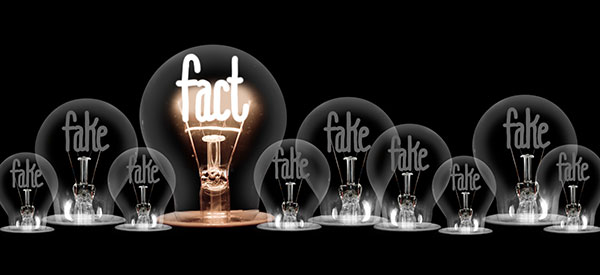
GET A FREE QUOTE
Simply fill out this form and a reputable lawyer in your area will contact you as soon as possible.


Request your quote now!


Simply fill out this form and a reputable lawyer in your area will contact you as soon as possible.


Request your quote now!
It is not always easy to accept the gravity of your situation. With denial being a powerful force, it’s no wonder so many people who find themselves in a legal turmoil wait too long before contacting a lawyer. Thinking that the problem will go away on its own or that the person going after you will change his mind is not realistic, to say the least.

Instead of neglecting your interests and risk paying thousands of dollars in damages, be resolute and seek the help of a qualified lawyer in Sherbrooke. To help you in your research process, we have listed the essential aspects of the practice of law in Estrie that you must know!
To convince you on how essential the skills of a lawyer in Sherbrooke is, it would be to your advantage to know the advantages of using his services as a starting point. Not only is he able to handle your dispute, but his legal knowledge and practical experience will make your life much easier, that’s for sure!
Speed in resolving a case. Although your case is one of a kind, lawyers still deal with many situations similar to yours. As a result, they are able to quickly develop effective strategies to end the dispute. They will either come to an agreement or they will succeed in persuading the opposing party of the futility of their pursuit.
Legal expertise. Of course, you can (and should) always try to resolve your dispute out of court before contacting a lawyer. Speak civilly with the person with whom you have an issue. However, at some point and when your attempts fail, it is time to hire a lawyer who will use their legal knowledge to persuade your opponent. It’s their job after all, so leave it to a lawyer!
Potential savings or monetary gains. In a civil lawsuit, the main and often the only requirement of the plaintiff is the payment of damages. So whether you are on one side of the lawsuit or the other, it is in your best interest to hire a lawyer! The latter will get you out of a stalemate and you can avoid having to pay damages as a defendant. On the prosecution side, seeking the help of a lawyer increases your chances of winning as a plaintiff which will result in a monetary award!
Enforce your fundamental rights. As they say, there is more to life than money! For this reason, the simple fact of asserting your rights in court by a qualified and reputable lawyer is an incomparable advantage!
Why do you need to know the main steps of a trial when you are paying a lawyer to handle these formalities? Because by learning even a little about the process, you will understand the effort that must be put into carrying out this endeavor. It might even make you reconsider your willingness to continue, who knows?

Formal notice: Receiving a formal notice has no great legal value. Rather, it is a way of asking someone to cease the alleged disorder or to remedy their inaction on a duty to act. However, as it is sent from person to another through a lawyer, it has no punitive power. However, formal notice is required in certain types of court cases and becomes relevant in the award of legal costs.
Request to institute proceedings: To move from words to action (and assuming that the formal notice has not changed the wrongful behavior of the future defendant), it will be time to send a request to institute proceedings. This request is made to the competent court to hear your case. How do you know which court has jurisdiction? By knowing the provisions of the Code of Civil Procedure that only lawyers bother to read!
Thus, it will most likely be your lawyer who will file the claim with the court and, at the same time, a subpoena will be sent to the defendant you are suing.
Case Protocol: Now is the time to switch to Case Protocol. As in all wars, rules surround the course of the conflict to ensure a minimum of respect and decency during hostilities. This is what the protocol of the forum aims for: to establish how the parties will exchange essential information, the deadlines that each must respect in the production of documents, and the provisions on protection measures.
Defense: The defense stage is the stage in which the defendant sets out the factual and legal grounds for challenging the lawsuit. It is possible for him to qualify the accusations made against him, or even to mitigate them, or even to simply deny them completely.
Settlement Conference: Regardless of the stage in the process of the trial, it is always possible to request such a settlement. The judge assigned to the case will chair this conference and will try to guide the parties towards a common understanding. This meeting is informal in nature, although it is held behind closed doors and is strictly confidential.
Hearing: Unless there is an amicable settlement, the hearing will take place before a single judge who will decide for himself which action to take. The plaintiff will first set out the facts supporting his claims as well as the legal provisions which supposedly prove him right. On the other hand, the defense will try by all means to dismiss the arguments of the plaintiff or counter them.
Judgment: Be patient, because passing judgment can take months! The judge will hear the case and take it under advisement which means that he will take the time to analyze the evidence submitted as well as the applicable law. If the delays are long, tell yourself it’s because the law is a very complex machine, even for a judge!
Are all these steps worth it? This is a very personal question, but one you will need to have an answer to before embarking on this legal process. Since the legal costs and personal time involved in a lawsuit are considerable, you need to be sure that the rewards are worth the effort. Only you can answer this question though!
When thinking about your future trial, you probably imagine yourself summoning the entire village to testify in your favor or you are thinking of presenting an astronomical pile of documents as proof. What you don’t know is that civil evidence law is an area of law that strictly regulates what evidence is admissible in court. Obviously, not all objects and documents have the same value or are authorized! So we present you the basics of the admissibility of evidence.

Testimonials: Using witnesses is a very useful way to build evidence and a solid argument that supports your case. However, there are limits. The general rule is that witnesses are admissible to prove legal facts, that is, events that could have a legal consequence on the parties.
On the other hand, witnesses are restricted in their ability to challenge legal acts in court (for example, contracts). They will be able to challenge legal acts, especially when there is a prima facie case supporting the statements they are about to allege, provided that the value of the act in question does not exceed $1,500.
But what is the value of testimony? It will be up to the judge to decide! It is said that the probative value of a testimony is left to the discretion of the judge. He is therefore the undisputed master responsible for judging the credibility of witnesses and the truthfulness of their statements.
Written deeds: Written documents are a solid way to prove any claim. This is especially true for proving the existence of a contract between two people. However, we must be careful not to compare all documents in the same way; some are more valuable than others.
Authentic instruments: Authentic instruments are said to be proof of their content. A public official must have undertaken the drafting or validation of such a document for it to be considered authentic. A notable example is the notarial will. By virtue of the powers of the notary as a public officer, the content of the will is evidence in itself that does not require additional verification.
Semi-authentic instruments: The semi-authentic instrument is the same as an authentic instrument, except that it comes from a foreign country. They have the same value as authentic acts except when they are the subject of a dispute.
Private deeds: Such documents are those which only bear the signatures of the parties involved, without them or the contents of the document having been verified by any authority. Thus, their content must always be proven.
Hearsay: Sometimes difficult to conceive, hearsay is a form of proxy testimony in that it involves reporting the facts of another person of whom a third party is aware. It is therefore admissible in court, but subject to any reservation as to the value given to it by the judge.
Presumption: In court, it is possible to draw conclusions from simple presumptions. The law differentiates presumptions of fact from legal ones. The latter are those which the law expressly provides and which are said to be “absolute”. When they are factual, presumptions allow one to move from an established fact to an unknown fact. The party alleging this presumption will obviously have to present the facts in such a way as to support this presumption and then leave it to the judge to analyze its merits.
Confession: Simply defined, a confession consists of admitting the facts in order to produce a legal effect. There are two types of admissions in Quebec civil law, namely, judicial admissions and extrajudicial admissions. The first consists in fact in admitting, in court, the facts which were alleged. By contrast, extrajudicial admission is more about confessing the facts in question outside the court. The form can be written or verbal, but the latter is more difficult to present.
The material evidence: We are talking here about an object supporting the thesis of the plaintiff or the defendant. What are the eligible items? As the Civil Code of Quebec stipulates that proof can be produced “by any means”, as long as it is relevant and helps to settle the dispute, a wide range of objects can be presented as evidence. .
The rules of evidence are sometimes complex for those unfamiliar with civil trials, but for lawyers in the field, it is a fundamental part of their job. They will, therefore, be happy to analyze the potential evidence with you!
Real estate law is certainly one of the most diverse legal fields. Since real estate is at the heart of the economy, it is not surprising that so many lawyers offer related services in the Sherbrooke region and in the Eastern Townships. To prove it to you, here are the services offered by a real estate lawyer that can be very useful for you!
Co-ownership law: Condominiums buildings have certainly been popular for several years now but they are also places prone to conflict. As the property rights of each owner closely coexist with that of the others, litigation is likely to arise. This can be caused by a disagreement regarding the declaration of co-ownership, the work done on the building, the decisions of the syndicate and more!
Buying and selling real estate: While selling a house does not require the intervention of a lawyer, the situation changes when selling an income property. The higher value of the property, the more it becomes necessary to get the help of a lawyer to ensure a safe transaction and ensure that due diligence is carried out. This can be relevant both in the context of running a business and between individuals.
Easements and right of way: The easement qualifies as a “charge” imposed on a land by another fund. This confers the right on the owner of the dominant land to make use of the easement base according to its destination for the planned duration. It is not uncommon for such dismemberments of property rights to lead to conflicts over the scope of the right conferred by the easement or even over the very existence of the easement. Lawyers are available to clear up this confusion!
Breach of contract: Real estate is an area that frequently uses the mechanism of the promise to purchase which in fact consists of a preliminary contract concluded with a view to signing the deed of sale. However, buyers or sellers sometimes do not understand the binding nature of such a promise, thus deciding not to act on it.
The principle of acquisitive prescription may seem difficult to conceive for ordinary people since it allows us to usurp another’s property right after a sufficient period of possession. Indeed, the person who acts as the owner of a real estate property for a period of 10 years can acquire by acquisitive prescription the land he occupies.

It is necessary that the person qualifies as a possessor! An individual will qualify as such when he has physical possession of the asset and presents himself to others as the true owner of the asset. Specifically, this can be a person who has maintained land that does not belong to him for a period of 10 years and who acts as if the plot really belongs to him.
A word of caution, though. In order for the person to remain in possession, the time must be uninterrupted, that is to say, the real owner must not have come and dispossessed him by maintaining or using the land himself.
Buying a house or a building represents an investment of hundreds of thousands of dollars. When the purchased good does not have the qualities that you were told or worse, has a defect that substantially affects its value, it is potentially a hidden defect. It is important to act as soon as possible by contacting a lawyer specializing in real estate law in Sherbrooke!
What are the conditions for recourse for a hidden defect? The definition of a hidden defect is subject to debate and this is why there is abundant case law on the subject. However, the defect must meet the criteria of a serious, non-obvious defect prior to the sale, and unknown to the buyer at the time of purchase.
Why is it important to consult a lawyer promptly? Firstly, because the victim of the defect has an obligation to mitigate the damage by acting quickly and to prevent his failure to act to aggravate the problem but also to maximize the chances of proving the defect. In addition, the law requires the buyer to notify the seller of the hidden defect within a reasonable time and in writing. Therefore, it is imperative to act quickly to avoid complicating the appeal.
Does selling without a legal warranty deprive you of any recourse? The reason people sell their homes without a legal warranty of quality is because they know full well that it is susceptible to defects of all kinds. The reduced price generally reflects the risk to the buyer and it effectively becomes impossible or at least extremely difficult to sue for a hidden defect in such a transaction.
However, a sale without a legal warranty does not entitle the seller to lie or withhold information from the buyer. This would constitute fraudulent tactics which would vitiate the buyer’s consent, even if the sale is made without a legal warranty.
What are the possible solutions when discovering a hidden defect? Litigation is not the only possible solution when there is a hidden defect. Real estate attorneys are able to negotiate out-of-court settlements between the previous owner and the new buyer to find a common ground.
If you have discovered a hidden defect in your property in Sherbrooke, do not delay before contacting a real estate lawyer, trust Compare Lawyers to help you!
Hiring a lawyer takes some research and it is inevitable. You will not be able to stumble upon the best legal expert by chance if you choose the first one you see. When comparing lawyers, you should consider these qualities that make a good lawyer.
Communication: In all its forms, communication between a client and his lawyer is essential. The information exchanged is so confidential that poor communication will only make the process difficult for everyone.
Boldness: It is said that a lawyer’s reputation begins to shine the day he or she wins lost cases. For this to happen, your lawyer must have the courage to try new techniques and new approaches to law.

Argumentation: Lawyers make their living by arguing. It is, therefore, normal that you should look for lawyers with an exceptional skill at argumentation. Your lawyer’s arguments will become yours, so put this aspect first!
Diligence: Working as a lawyer requires many hours of work, research, writing and contact with the different players involved. A lawyer who does not have such diligence is not for you!
Patience: A person in a hurry won’t find his place in the legal field. The deadlines are numerous and often long! So your lawyer must have the patience to bring your dispute to its resolution at all costs!
The best way to prepare yourself for the legal storm that looms on the horizon is to be in full control of the facts and laws applicable to your dispute. What if you have never taken legal training? By asking your lawyer questions, of course!
Has your lawyer already taken on a case similar to yours?
You can’t buy experience and if there is one thing that will make it easier to resolve your case, it is your lawyer’s legal experience. If he has already settled several cases like yours, he will know what to do to complete everything as efficiently and as quickly as possible.
How does your lawyer assess your chances of victory in your case?
Victory is the goal when you approach a lawyer. It is only normal to ask him about your chances of winning. Be aware that his answer will be only a prediction based on his years of experience and his legal knowledge and that the law is not an exact science; he could be wrong. However, asking the question will only give you a better idea of the outcome you should expect.
How does his billing work and how many hours does he think he will devote to the case?
Does he work based on an hourly rate, a lump sum, a percentage of the damage obtained or another billing method specific to it? Does he require an advance payment placed in trust? These are questions to which the answers directly impact your finances. It is crucial to ask them from the start.
Is your lawyer considering settling the dispute out of court?
Your philosophy and that of your lawyer must be one. It is imperative that are both on the same page from the outset on the possibility of resolving the matter other than in court. So discuss alternative dispute resolution methods with your lawyer such as mediation or arbitration.
Why does the lawyer think he is the best person to help you win your case?
Lawyers are often praised for their skills at argumentation and as salespeople. See for yourself whether your lawyer can brag about his own merits and, by doing so, convince you of the usefulness of his services.
Criminal and penal charges have far-reaching consequences, far more so than civil cases. A large monetary compensation will seem little compared to a criminal record for a lifetime. This is why it is so important to hire a lawyer as soon as the possibility of criminal prosecution arises. To get a better idea of what you are facing, here are the types of charges that could be laid against you.

Summary offense: These are the less serious offenses under the Criminal Code because of the mild consequences they entail. For example, shoplifting is normally considered a summary offense when the value of the stolen goods is low. The procedure for a summary offense is shorter than for an indictable offense.
No preliminary inquiry is carried out and it is a judge alone who hears the case and renders the verdict of guilty or not guilty. Sometimes it is even possible to send a lawyer to appear in court on your behalf unless the judge requires the physical presence of the accused.
Criminal Act: The most serious acts and behaviors are considered criminal acts under the Criminal Code. The easiest example is obviously murder; an immoral and unacceptable act that no one can commit in society unless they are acting in self-defense.
When you are charged with a serious crime, you have the right to have a preliminary investigation carried out to determine the sufficiency of the accumulated evidence. Subsequently, if the judge orders the continuation of the trial, it will take place before a judge and jury. Less serious criminal offenses, however, allow a trial by judge alone.
Mixed offense: A mixed offense will be considered when the reprehensible act falls within a gray area of the law. This means that it could just as easily be considered a criminal act as a summary act; it will be up to the crown attorney to decide under which he will lay the charges.
Contravention of a regulation: Contraventions are not listed in the Criminal Code because the targeted behaviors do not break laws but, rather, regulations. These are of lesser value than the law and therefore their transgression leads to a ticket and not a criminal charge.
Don’t waste your time contacting all the lawyers listed in the phone book. If you are at the stage of hiring a lawyer, let Compare Lawyers help you find the right lawyer for you.
We work with the best lawyers in Estrie to provide you with outstanding legal services.
Just fill out the form at the bottom of this page and we will send you 3 free quotes from lawyers in Sherbrooke!
Don’t delay another minute and get peace of mind that your case will be at the hands of a competent lawyer. This referral service is free and without obligation!


Simply fill out this form and a reputable lawyer in your area will contact you as soon as possible.


Request your quote now!